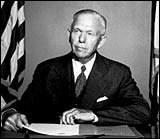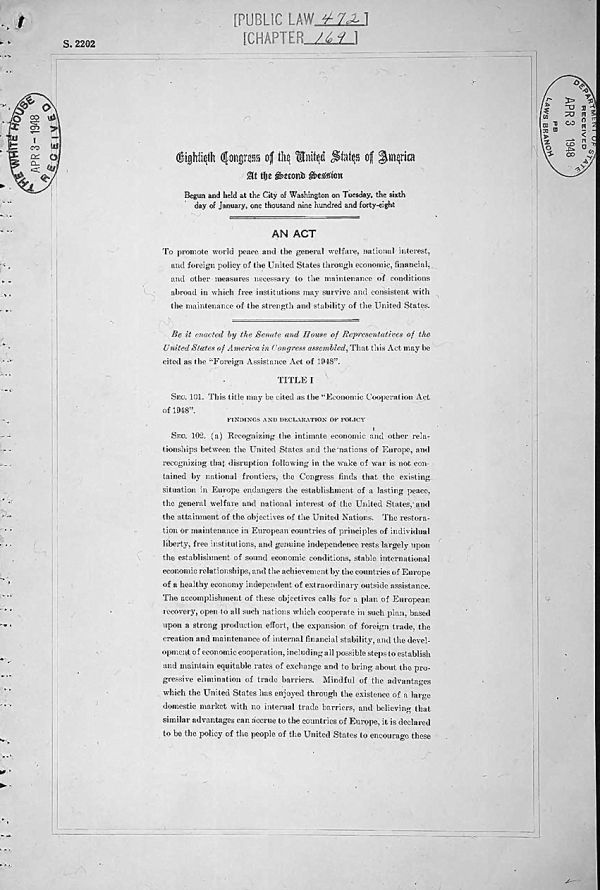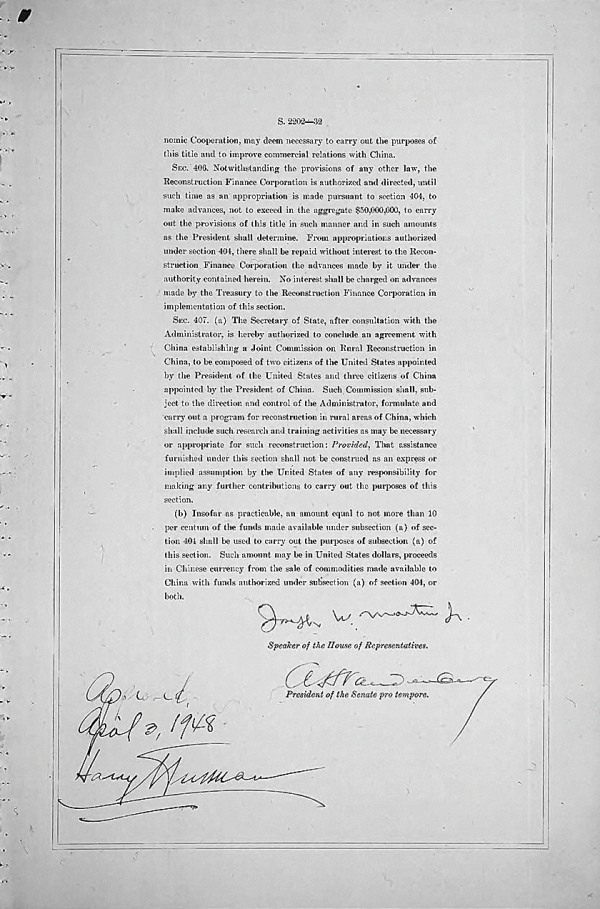
The Marshall Plan
As the war-torn nations of Europe faced famine and economic crisis in the wake of World War II, the United States proposed to rebuild the continent in the interest of political stability and a healthy world economy. On June 5, 1947, in a commencement address at Harvard University, Secretary of State George C. Marshall first called for American assistance in restoring the economic infrastructure of Europe. Western Europe responded favorably, and the Truman administration proposed legislation. The resulting Economic Cooperation Act of 1948 restored European agricultural and industrial productivity. Credited with preventing famine and political chaos, the plan later earned General Marshall a Nobel Peace Prize.
Shown here are the first and last pages of the resulting law, most commonly known as the Marshall Plan.
- View the Marshall Plan Files in the National Archives Catalog.
- The Archives Library Information Center (ALIC) features a number of links to information about the Marshall Plan.


